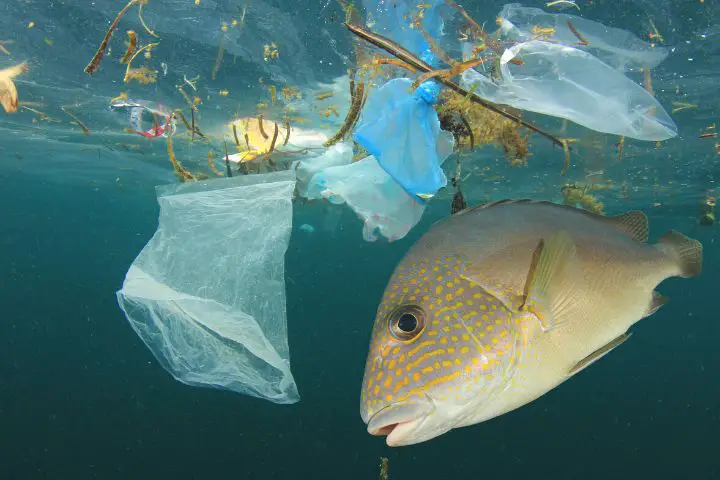Why Quitting Smoking Is Best for You and the Environment
Quitting smoking is a tough choice, but it can have numerous personal and environmental benefits. By stopping smoking, you’re taking a positive step towards a healthier life while promoting a greener planet. From the risk of developing cancer, heart disease, and other chronic illnesses to the production of cigarettes and their disposal, smoking poses numerous threats. Here is why quitting smoking is best for you and the environment and some steps you can take towards finally conquering your nicotine addiction.
Improved Respiratory Health
Quitting smoking can improve your respiratory health in several ways. Your lung capacity will improve, reducing the strain and damage done by smoking. You will take deeper breaths of clean air improving your oxygen intake and better energy levels. You will have more energy for activities like running or playing sports, and your ability to participate in physical activities won’t be limited by poor breathing. Your lungs will also begin repairs from the damage caused by smoking, so you may experience less coughing and wheezing when quitting.
Satisfaction From Achieving Your Goal
Breaking an addiction is challenging, but taking this step can give you a sense of achievement that may inspire you when facing other situations. Additionally, quitting smoking can enhance relationships because it eliminates the worry of secondhand smoke and related health hazards for those around you. You’ll also be able to set a positive example for those who may have been struggling with quitting themselves.
Financial Benefits
By not buying cigarettes or smoking accessories such as lighters and ashtrays you can save money. You may also find that your life insurance premiums are lower when not smoking due to the reduced risk of developing serious illnesses. You will have extra money that you can use to adopt healthier habits and activities like eating nutritious food or enrolling in fitness classes, and this may result in more substantial savings over time.

A Longer Life
Quitting smoking can repair the damage caused by smoking and decrease your chances of getting these severe illnesses. You’ll also have a much greater chance of improving your overall health with better circulation, improved oxygen intake, and lung capacity. Socially, quitting smoking can also alleviate anxiety in many social situations where smoking is now prohibited. Quitting smoking has numerous benefits, including reduced stress and anxiety levels that often plague smokers due to addiction.
Improved Appearance
Stains from the nicotine and tar found in cigarettes can cause discoloration of your teeth, fingers, and nails. It also affects the production of collagen which is responsible for keeping our skin looking young and plump so quitting smoking can help to improve your complexion. You may also lose weight more easily when you quit as the body begins repairing itself from the damage caused by smoking, and your metabolism improves. You can also enjoy the added benefit of fresher breath.
Better Mental Health
Many smokers find cigarettes a source of comfort and idolize smoking to reduce anxiety, alleviate boredom and increase social interaction. Stopping smoking makes it an effective strategy for treating mental health issues by boosting self-esteem, increasing concentration, and improving overall mood. Additionally, you can serve as a role model to others and discourage smoking habits.
Tips for Dealing With Cravings After Quitting Smoking
The cravings that come with quitting smoking can be the biggest hurdle to overcome. Vaping is often considered a safer alternative to smoking that can help people quit the habit while still providing a similar experience. However, ensure you get your vaping products from reputable sources such as Secret Nature CBD. Doing so will guarantee quality products. Other effective strategies to help you overcome cravings include the following:

Chew on Something
Chewing on something can help distract you from the craving and give your mouth a sense of satisfaction. Try chewing on sugar-free gum, crunchy vegetables like carrots, celery, or hard candy. These options are usually low in calories and contain natural ingredients that can satisfy your cravings without leading to weight gain. Additionally, they provide an activity for your hands and mouth which often helps divert attention away from cigarettes.
Exercise
Physical exercise is an excellent way to distract yourself from smoking cravings. Bring up your energy levels by engaging in any physical activity. You can also consider going for yoga classes or hitting the gym. Whenever the urge to smoke arises, try going for a walk, doing some yoga, or stretching indoors.
Relaxation Techniques
Relaxation techniques can help you calm down and reduce the intensity of cravings when they arise. Try meditation, deep breathing exercises, progressive muscle relaxation, visual imagery, or guided relaxation audio recordings to relax your body and mind in times of stress. Such activities can help you feel more in control and focused on the present moment, which often allows cravings to pass with less intensity.
Use Positive Affirmations
Positive affirmations can boost your confidence and keep you focused on quitting smoking. List positive affirmations that you can say to yourself at any time of the day. For example, ”I am in control of myself, and I will not let cravings control me.” In addition, celebrate your milestones and achievements in quitting smoking by rewarding yourself with non-smoking-related treats or activities.
Find Support

Enrolling in a smoking cessation program provides a supportive community of people who are also quitting smoking. Talking to family members or friends who have successfully quit smoking can be very helpful for gaining insight and tips on how to cope with cravings. Taking advantage of helpful resources such as online forums or quitting apps can help keep you on track and provide guidance to reach your goal. Additionally, receiving professional counselling may be beneficial if needed.
Avoid Triggers
Common triggers include stress, alcohol consumption, social smoking situations, or certain smells or tastes. If possible, avoid such triggers by creating an environment where smoking is not seen as the norm. Other strategies for avoiding these triggers include developing healthier coping skills and activities that can take your mind off cigarettes, such as reading a book. Stay away from smoking areas and friends who smoke.
Create a Craving Journal
Writing down your cravings can help you recognize patterns and potential triggers. Keeping a craving journal allows you to identify what might be causing the urge to smoke and how it feels at that moment. Using this information can assist you in creating better tactics for controlling future cravings. Writing down other activities or emotions associated with the desire to smoke may also provide valuable insight into your triggers. The craving journal is an excellent tool that can help you gain better control of your smoking habits and work towards successfully quitting smoking for good.
Why Quitting Smoking Is Best for the Environment
Saving Water
The process of producing cigarettes requires large amounts of water. From growing tobacco plants to manufacturing and packaging cigarettes, the entire process consumes a lot of water resources. When there is a decrease in the demand for tobacco, this would contribute positively to preserving the planet’s vital water resources.

Reduction in Fire Risks
Fires caused by carelessly discarded cigarettes can have devastating consequences for both people and the environment. Containing these fires requires extensive resources that can be better used elsewhere. Quitting smoking reduces the risks of such accidents happening in the first place.
Reduce Litter and Waste
The filters of cigarette butts take up to 10 years to decompose, leading to an enormous amount of litter over time. Cigarette butts also enter water bodies and contaminate them, causing environmental degradation. Smokers also contribute to non-biodegradable litter like packaging, discarded matches and lighters, and other smoking paraphernalia, causing serious environmental pollution.
Conservation of Land for Tobacco Farming
Growing tobacco requires primary forests to be cleared for farming, contributing to deforestation. Deforestation leads to a reduction in biodiversity and land degradation. Deforestation also leads to soil erosion, water runoff, and extensive loss of animal habitats, causing significant environmental degradation. When you quit you contribute to decreasing the need for tobacco farming, and the land can be used for other essential purposes.
Reduction in Air pollution
Smoking contributes significantly to air pollution through toxic chemical emissions released from the cigarette. When inhaled, this pollution can cause respiratory tract and pulmonary-related illnesses. Quitting smoking reduces the amount of air pollution, protecting people from illnesses caused by smoke inhalation.
Help Reduce Water Pollution

One of the primary reasons for water pollution is the disposal of cigarette waste. When improperly disposed of, cigarette filters leach toxic chemicals, heavy metals, and other pollutants into surrounding water bodies. This pollution harms marine life, with animals mistaking the cigarette filters for food, which can choke or starve them to death. Cigarette pollution can also cause toxic algae blooms and bacterial growth that impact human health.
Endnote
Quitting smoking is an admirable goal and should be set for an attainable timeline. There are plenty of cessation tools available online to help people with their journey towards quitting. Don’t give up if your initial attempt to quit doesn’t work. Take advantage of resources, stay away from triggers, and create a craving journal to identify your smoking patterns. With dedication and help from friends or professionals, you can get on the path to quitting cigarettes for good.






